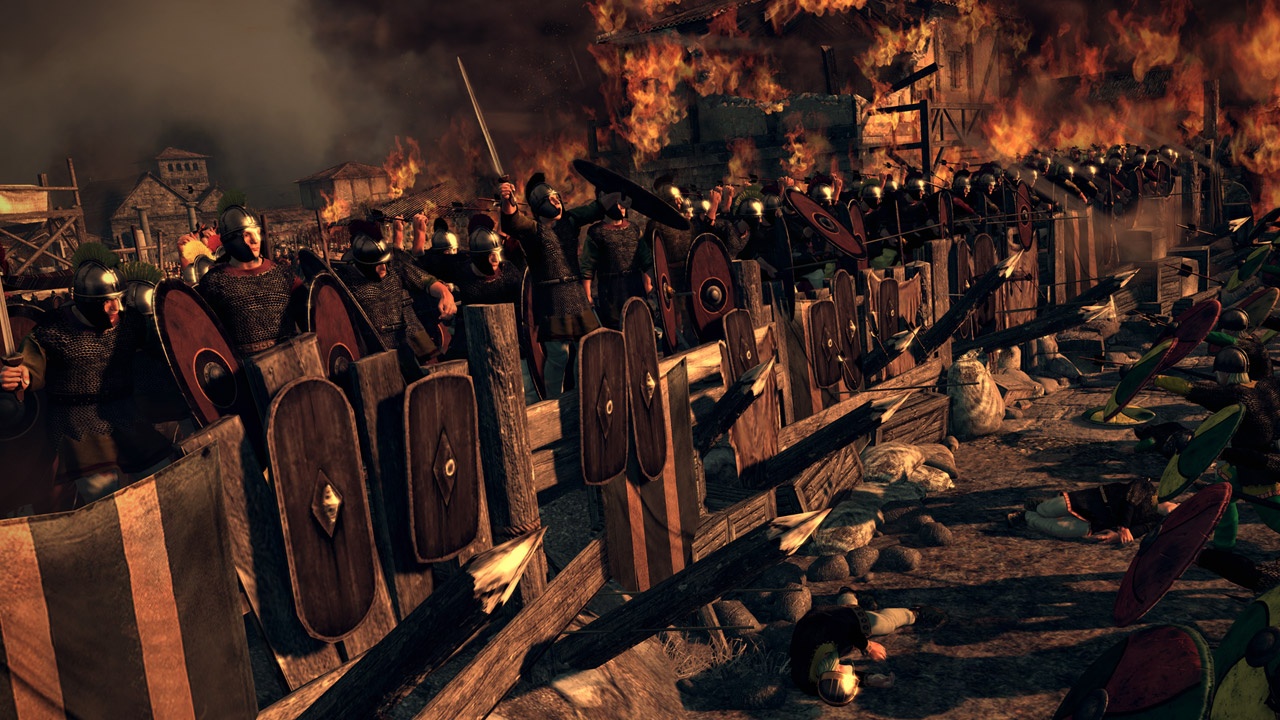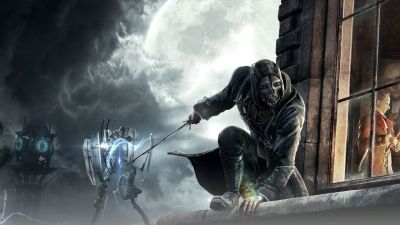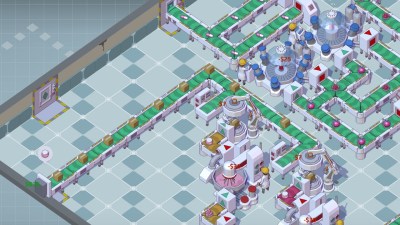I’m a big fan of the Total War franchise. I’ve been playing them since not long after I started to game, and have now played every single game in the series.
The amount of time I’ve spent conquering and negotiating means that I’ve probably spent more time looting and pillaging in Creative Assembly‘s strategy franchise than is probably socially acceptable, but there’s something about Total War which draws me in deep - even when I’m confronted with the constant issues which threaten to spoil my fun.
There’s so much depth that I keep coming back game after game without fault, even after soldiering through the bugs of Rome II. So going into Attila, I was expecting another game that I could sink hundreds of hours into without getting bored; which is exactly what I got.
Let’s not beat around the bush. Total War: Rome II was a mess at the time of its release back in 2013, as we pointed out. It was so full of glitches and bugs that many people didn’t even bother buying it until the Emperor Edition and a large number of patches had managed to paper over the cracks. I soldiered through for the brilliant setting and the massive scale, putting hundreds of hours into it before I finally burnt at the end of last year. But I felt safe in the knowledge that Attila was on its way. I was crossing my fingers in the hope that Creative Assembly would hit this one for a home run - they’ve had 15 years of experience with the series, after all.
Thankfully, Attila is one of the most solid Total War games in a long time. It manages to avoid the glitches that plagued Rome II and its Emperor, and made those games all but unplayable on release. This is a bigger feat than most will give Creative Assembly credit for; the sheer scale of Total War means that so much could go wrong, and frequently does - not least when it comes to the AI of computer-controlled opponents. But with Atilla, Creative Assembly has managed to get the series back on track, and the result is that they have managed to deliver a stable base game with a lot to recommend - even if it does wobble a bit on occasion.
As soon as you start to play Attila you’ll notice the similarities to Rome II, and this isn’t just limited to the time period (Atilla is something of a direct sequel to the previous game, picking up almost immediately where it left off). You’re playing on almost the exact same campaign map, albeit extended a bit in all directions. Admittedly, you can’t exactly change the layout of Europe, and it does mean that if you come to the game straight from Rome II you can hit the ground running; but I look forward to Total War: Warhammer and its move to a fantasy setting, which should help shake off a bit of the sense of familiarity that the series has built up over the years.
A lot of environmental assets in Attila are from Rome II, which means that when you’re playing, it sometimes feels more like a mod or a (large) expansion, rather than a full new game. Yes the units are new, but the backdrop they’re fighting in outside of cities definitely feels like Rome II. That’s not necessarily a bad thing, but as someone who’s already played so much of Rome II, I would have preferred something a bit more obviously new.
The new city designs are fantastic though, even when it comes to the smaller unfortified towns. They’re much more strategic, and their elevation is now a key factor when planning a city battle. This is amazing when you’re in a unique city such as Constantinople, because it’s been designed from the ground up for an interesting siege. You’ll have to fight up streets to elevated centres that favour the defender. Given how often you’ll be defending, this is definitely a good thing. Or else Attila may very well be impossible to win.
Tonally, if apocalyptic was what Creative Assembly were going for then for the most part they’ve managed to hit the target. Atilla is a difficult game that’s not for the faint of heart, especially when playing as certain factions. Playing the Western Roman Empire is so difficult that I can imagine a Creative Assembly developer laughs every time someone tries. Not only is your empire is large and yet you have very few armies to defend it, but also you start the game losing money. It makes sense given that the game is set during the decline of the Roman Empire, but sometimes the difficulty feels a little too skewed against the player. It’s not impossible, but be prepared to be fighting for your life the entire time.
The AI is still as bad as ever, but fortunately Creative Assembly has managed to mitigate this problem somewhat by making the environment as much your enemy as other players - at least when playing as certain factions. Army sizes are noticeably increased, making it harder to spot errant AI. Computer opponents have been given a lot of men. With so many barbarians running around it almost doesn’t matter how smart they are - they pose a threat by sheer weight of numbers.
One of the biggest new features in Atilla is the effect that Winter brings. The new weather system can see your food supplies cippled when Winter hits, and makes your armies ineffective depending on the nation you’re playing as. Northern factions have natural resistance to the cold, while more Southerly factions will suffer major penalties - but regardless of which you decide to play as, you’ll want to keep an eye on the time of year. With your army’s stamina depleted from the harsh weather they’ll become easy picking for the barbarians - if they don’t starve to death first when your food supply plummets.
Another notable addition is the horde mechanic. This is something that I’ve wanted to see in Total War games for an long time, because of just how much freedom it allows for. You’re no longer restricted to cities as you can sustain and expand without them. You no longer have to complain about a bad starting position when you’re able to simply move your nation to new lands. This is restricted to certain nations, but it makes for a unique style of play that hasn’t been offered before. When this is coupled with the ability to completely annex lands, your destructive capabilities are massive. It’s because of this that playing a static nation becomes so difficult. There are armies roaming everywhere that you’re unable to stop from destroying your lands piece by piece.
Destroying cities is a big part of Attila now that you’re able to completely raze cities to the ground. This is something I’ve always wanted to be able to do because it means that playing as a horde is now completely possible. You’re able to conquer another faction without having to deal with the unhappiness penalties that come from occupying cities, and this adds another element of danger for the larger factions as well. It’s easy to lose cities thanks to hit and run attacks by wandering barbarians, which keeps you on your toes, especially in the early game.
Disease can also cripple your armies and cities and now spreads in a more realistic fashion. Rather than the world just becoming covered in plague - as was the case in Medieval 2 - your armies and agents carry disease with them from city to city. So while your army might be losing men from disease, you can feel safe in the knowledge that whoever you fight will catch the affliction as well. The changes to disease are some of my favorite additions, because they add a huge element of risk and reward as you’re forced to decide between defending your cities, or stopping the spread of plague.
There’s a lot more which could be mentioned about Total War: Attila. Much of the content is familiar: but the new mechanics, improved AI and increased scope mean that Atilla is by far the most progressive games in the series for quite some time. The result is that with the release of Total War: Atilla, Creative Assembly has managed to get the series back on track after a period of treading water with increasingly buggy additions to the series. Staying on a map of Europe might be starting to get old, and there’s still the long turn times and AI issues to contend with, but Creative Assembly throws just enough new mechanics into the mix to make Atilla a worthwhile addition to the series - even if the increased level of difficulty is likely to leave newcomers frustrated.
15 years on, Total War: Atilla sees Creative Assembly showing that they’re still able to deliver a solid game, albeit one that is very much an evolution rather than a revolution. Strategy fans will find much to love - assuming they have the patience to put up with the long waiting times between turns when playing against the computer - but all eyes will now be falling on Total War: Warhammer, in the hope that the developer can truly deliver something which genuinely feels as though the franchise is able to take meaningful steps forward into new territory.



